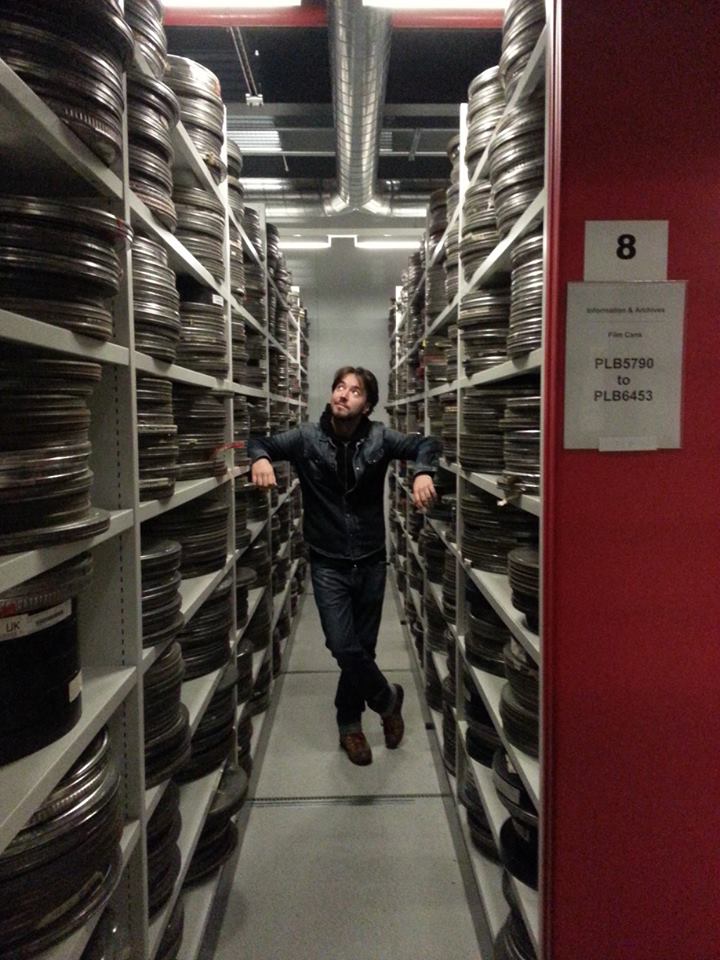ASK & DISCUSS
INDEXWhat to do if you're told not to do something?
10 years, 6 months ago - wendy Zakiewicz
Hi Shooters
I’m looking for advice. I recently made a film focusing on a charity that redirects supermarket food waste from landfill towards other worthy causes. At first they were happy with the film, even using it for a fundraising screening. However, an opportunity arose to broadcast it and I was requested to give Sainsbury’s the right to reply. Since then, after a word from Sainsbury’s, the charity have attempted to stop me showing the film. However, I own the rights (i.e. it wasn’t commissioned, and I have signed releases) so I believe they have no power over it. I never intended to cause conflict with the charity or the supermarket, and I believed the film had been made in a sensitive and factual way to prevent this. So either I comply, or attempt to show it as much as possible. What should I do, and how can I get it seen by as many people as possible if I decide to do that?
Any advice welcome.
Only members can post or respond to topics. LOGIN
Not a member of SP? JOIN or FIND OUT MORE
10 years, 6 months ago - wendy Zakiewicz
Thanks for your responses.
In reply to you Marlom, yes Sainsbury's have seen the film, I sent it to them in order to give them the right to reply. The film is not even critical of them directly but I cannot imagine they will ever be supportive of a film that visualises the situation and allows the public to know what is going on. It's not my ego that I want to support but more the right to be able to report on a situation in a factual way without being censored, so I think thats what makes me want to show it (not to mention all the work that has gone into making it). So far I have attempted to contact them on two occasions but each time instead of replying to me they have contacted the charity who have then asked me not to show it.
The film is 27 min and it is made as a stand alone, so I have no intentions to use it in a different context.
And Paddy, yes I am trying to come to an agreement where all parties are happy. The problem is the charity want me to remove a quarter of the film, which i'm concerned will just leave the film in pieces, but I am planning to meet with them to discuss options further.
And Andrew, I don't think there is a dispute about who owns the film, but are you suggesting that they might still have rights over it? Getting the advice of an entertainment lawyer sounds great, though it also sounds expensive. Any recommendations for this?
10 years, 5 months ago - Mät King
Last para, fourth line should read: irreparable.
Note to Shooting People. When is that edit text function coming?
10 years, 4 months ago - Filip Firlej
Hi Wendy, working in licensing I can tell you it's pretty simple. As long as you have releases and you weren't paid to do the work, you own it and technically it can't be shown publicly without your consent, and especially not broadcast - unless you sing of on permission, or accept a fee.
The situation you're in, of course they don't want you showing it. This is the role of the 'investigative journalist/film maker', if you believe you have a message to spread, it's up to you to do it.
How that affects your diplomatic relationships is another question and up to you to decide how to proceed.
Otherwise, depending on the paperwork you have, it seems pretty clear cut in terms of ownership.
Good luck!
10 years, 5 months ago - Mät King
The situation sounds awful, and it seems you have walked into a minefield. But as unfortunate as it all is you do have to ask yourself some questions to enable you to choose a path.
1. What do you want to get from the film, and or your relationship with the charity.
2. Is there any realistic chance of a long term relationship? ( can it be water under the bridge, or will the charity not wish to work with you any more)
3. Is it worth re-cutting and perhaps re-shooting where you may get more contacts, better footage, and show how "sensitive, accommodating, and agreeable" you can be.
4. Is the film good as a stand alone for you to generate interest in the cause or your career?
5. What is the outcome you wanted and what is the best you can now get?
6. Are you feelings/opinions/ crisis of any note to the charity. In other words: Do they care?
It would seem the charity values their relationship with Sainsbury's more than with you. If that is the case, and then the calls don't get returned from their comms person it isn't going to work out well for a long term relationship. We've re-shot on occasion way beyond any contractual agreement as to not do so would have sullied a relationship, but have found that once that relationship is changed it is often repairable regardless of the extra mile.
Sometimes you have to just thicken the skin and put it down to experience: and of course shop at Waitrose...
10 years, 5 months ago - Mät King
The best person to give you legal advise is a lawyer/solicitor. After all, you will be the one having to deal with the ramifications of the "free" advice if it were incorrect.
Sounds like an interesting film. Let's hope you can resolve it and get on with a new trouble free production sometime soon.
10 years, 5 months ago - Richard Simkins
Hi Wendy,
Working with NGOs and other political groups that care about certain causes I realise most have within them internal politics which are hard to override.
Often such groups don't understand you need to chat and lock certain things down prior to shooting. And expect you to be able to make changes after the edit. So firstly is this is a corporate video and has a measure of corp. branding, which was commisioned with this intent? Or is it a stand alone impartial style ob doc?
My experience also tells me there are many quasi charities out there, that albeit do good things, are constrained within their nervous nature not to offend anyone. Films generally have some level of contention to them - thats what make them watchable.
My advice is, if you're 100% sure on the facts within the film, plus 100% sure of ownership, then get it out there and don't be shy about it!
-Do you really want to work for this client again? If so are you putting the hope of money up against your already done hard work?
-Do you believe in the films message? And feel morally right about it?
- Films that create controversy get people watching them! On that note please keep in touch, I would love to see it!
Richie
10 years, 6 months ago - wendy Zakiewicz
Hi Dan,
The charity don't want me to show the film as they have inadvertently criticised the food industry and therefore are scared that this will damage their relationship with supermarkets. Previous to the response from Sainsbury's they were happy to use the film for a fundraising screening (all money going to them) as the film highlights the great work they do. I have heard other criticisms of the charity being at the call of the supermarkets, and being told not to show my film is another example of this. The question is what would be the consequence if the film got out, and is this a positive or negative outcome? In my opinion it would be a positive thing as it exposes the bizarre situation of mass scale food waste and the positive way people are reacting to it. If in the extreme situation it caused the supermarkets to stop donating then surely that too is a scandal that needs to be exposed?
10 years, 6 months ago - Dan Selakovich
Well, are you hurting the very people you're trying to help?
Aside from that, perhaps a disclaimer at the beginning of the film that explains the situation (more clearly than you've explained here). Why is the charity not wanting you to show the film?
10 years, 5 months ago - wendy Zakiewicz
Thanks for your comments. I think Richie especially you have understood the situation really clearly. It is a stand alone ob doc which was not commissioned (i.e. they gave me access but I was not paid at all) and so I had a certain freedom that went beyond what their corporate line intended. As I said they initially loved it, its only since S contacted them that they have changed their view on it. I met up with the charity yesterday and concluded that I didn't want to change the film from being a critique of supermarket food waste into a promotional film praising supermarkets for donating food. The fallout Im told is that supermarkets may stop donating to the charity if the film gets out, and in response to Dan's question I'm afraid the charity definitely do not want this controversy. In fact they are very frightened of it. I am going to ask for evidence of this threat but I expect them not to give it to me in which case I think I will just keep the integrity of the film (and reject the payment to re-edit my film). I'm pretty certain there's nothing legally wrong with the film but it is a bit frightening when they say that they have been talking to their solicitors, etc. So if anyone wants to check it out and give me legal advice I'd massively appreciate it.
10 years, 5 months ago - Dan Selakovich
Wendy, I assumed it was something like this, but didn't want to jump to that conclusion. I'd have to agree with you wholeheartedly. Plus, I would think that the charity would welcome the controversy--it would expose them to more supporters.
10 years, 6 months ago - Andrew Morgan
Personally, I'd seek the advice of an entertainment lawyer - both parties will have an idea of what they *want* - neither will be straight with you as to *your* rights as the owner of the film.
10 years, 6 months ago - Marlom Tander
Have Sainsbury's actually seen the film? Who is in control of the context in which it will be shown.
If S have NOT seen the film and the broadcast will be stand alone then a showing them the film and having a dialogue might well suit.
But if the broadcast would be within a debate or current affairs program then S might well be worried about the film be edited in ways they don't like, or reported to a wider audience in a context that worries them, even if they love your film.
Basically you need to have a chat with S. See if you can get them onside.
Personally IMO if you can't get agreement, you should walk away. Show it in the teeth of opposition from the charity and you become yet another film maker more concerned with your ego than the people who have allowed you to film, and one of the reasons that so many people/organisations are wary of giving permissions to cameras.
Cheers
10 years, 4 months ago - Dan Smith
It's difficult, I had a similar problem with a Charity. The best thing to do is contextualise the film..."reproduced with Kind Permission."
10 years, 6 months ago - Paddy Robinson-Griffin
Youtube? Once it's out in the world, the genie escapes the bottle and will not go back in. Any legal ramifications (whatever they may be) will not affect the wide distribution you sought. You'd need to be quite confident you're not defaming any parties, not factually inaccurate, etc.
However, seeing as this may further damage the relationship between the charity and supermarket, is it something you really want to do? Perhaps pressing for an amicable solution with all three parties would be better for all concerned?







